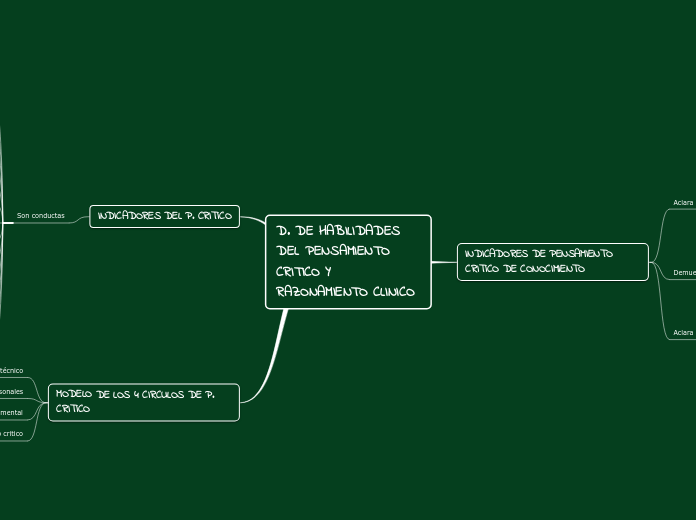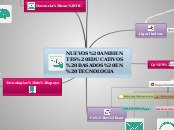D. DE HABILIDADES DEL PENSAMIENTO CRITICO Y RAZONAMIENTO CLINICO
The part of speech is a category to which a word is assigned according to its syntactic functions. In English the main parts of speech are noun, pronoun, adjective, determiner, verb, adverb, preposition, conjunction, and interjection.
MODELO DE LOS 4 CIRCULOS DE P. CRITICO
An adverb is used to describe a verb, but it can also describe an adjective or another adverb.
Adverbs normally help paint a fuller picture by describing how something happens.
Características de pensamiento critico
actitudes/conductas
Conocimiento teórico y experimental
Competencias intelectuales
Habilidades de competencia intrapersonales
Always, usually, Never
Habilidades de competencia técnico
Create sentences
Carefully, Slowly
INDICADORES DEL P. CRITICO
A numeral is a word or phrase that describes a numerical quantity.
Some theories of grammar use the word 'numeral' to refer to cardinal numbers that act as a determiner to specify the quantity of a noun, for example the 'two' in 'two hats'.
Son conductas
Orientado a la salud y ala mejora
Realista y Practico
Creativo
Mente abierta y justa
Cuidadoso y prudente
Autónomo-Responsable
Sincero y honrado
Seguro y de fácil recuperación
Analítico y perspicaz
Curioso e inquisidor
Comunicador eficaz
Genuino-autentico
Autoconocimiento
INDICADORES DE PENSAMIENTO CRITICO DE CONOCIMIENTO
An adjective is a word that's used to describe a specific noun and to provide more detail to the listener.
Aclara el conocimiento de si mismo
Nivel de compromiso y los valores
Prejuicios, Valores y Creencias
Demuestra
Superlative adjectives demonstrate a higher level of comparison between entities.
Principios éticos y legales
Signos, Síntomas y complicaciones
Principios de nutricios y farmacología
Aclara el conocimiento enfermero
Expresses a comparison between two entities or groups of entities in quality or degree.
Alcance de la practica
Modelos roles y responsabilidades
Anatomía, Fisiología y Fisiopatología









